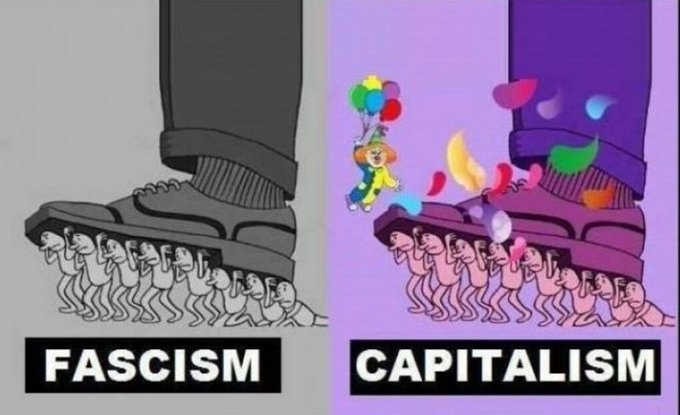Calling people Human Resources is much better than calling them Slaves.
Hired workers are much better off than slaves. When black slaves were freed, many of them remained on the plantation as sharecroppers, with many not earning much more than they were given when they had the legal status of farm animals. But, they were free. They could leave the plantation if the master whipped them or raped their daughters (or sons).
It is funny that Marxists can call workers slaves, and not be called on marginalizing or appropriating the experiences of actual slaves, including the ancestors of millions of Americans. I oppose the death penalty, but if I called the deaths of murderers after a legal trial "a Holocaust," I would rightly be called on it.
Years ago I had a conversation with a man who told me that he "Loved Cars". He was carrying an Automobile magazine. So I asked him what a cam shaft was. He didn't know. I opened his magazine and pointed at a part in an ad and asked him what it was. He said, "Cam shaft?" in a questioning voice. I was pointing at a crank shaft.
Try finding out how much American consumers have lost on the depreciation of automobiles and other durable consumer goods since Sputnik. Americans go into debt for stupidly designed crap and brag about it.
Ok. People spend more money on cars than you think that they should, is your point? I myself has sworn never to buy a new car again, paying absurd prices for a car designed to perform sub-optimally in order to comply with environmental regulations. I'll buy a car from the early seventies, since I learned to work on them in the late seventies.
Yes, American debt sucks and our cars are a big part of that. Marxist East Germany had a car called the Trabant, its attempt at emulating the Volkswagon. It was a decent little car. It had frequent breakdowns, but it was easy to work on, if you could find the parts. When the border opened, owners of Trabants were among the first to cross into West Germany. I bought one from one of them, being stationed there. They were all over the place, and I decided not to ship it home which I regret every time I think about it. Definitely not showy.
The thing about the Trabant is this: only a tiny percent of East Germans were able to save the money to buy one. So, yes. They were not heavily in debt for a car, they just didn't have one.
Computer performance is measured with benchmarks. I worked for IBM. I never saw the word benchmark on any IBM documentation. I had to write my own to test a couple of machines.
We now have the technology to wreck the planet and enough people. Listen to economists talk about GDP, but really notice if they mention NDP, Net Domestic Product. Research NDP and see what it says about the depreciation of durable consumer goods.
I get it. Durable goods depreciate and that is a reduction wealth.
What is the solution? No more production of durable goods? Somehow make them last forever with no depreciation? It is depreciation and limited life that leads to innovation. If I bought one car on my sixteenth birthday, and kept it all my life, manufacturers would not have a market for their newest designs.
Unfortunately, most of the innovation in private automobile technology has been centered around reducing its "carbon footprint," rather than making it more beneficial to the consumer. That's what happens when government says, "Oh, sure we want a free market. We will just have to regulate it for our own goals."
For most durable goods, being less regulated, the innovation benefits the consumer. From the days of buying coffee beans in bulk, to take them home, roast them, grind them, and steep them, we now have the K-cup. In fact, bags of coffee beans to be custom grinded in a digital grinder and percolated or French pressed are now a bit of luxury item used by the children of millionaires and children who have made a profession of getting student loans.
Economists cannot tell the difference between a banana and an air conditioner.
From whom do you get your information about economics?




